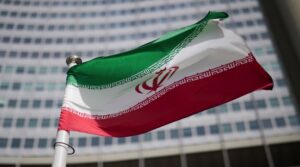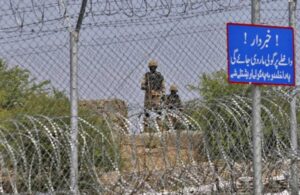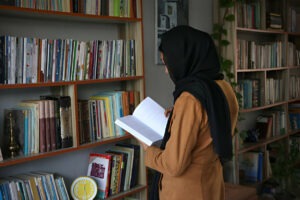KABUL (SW) – Analysts believe the poor and needy on the margins of the society are going to suffer the most due to the ban imposed on women working in the non-government organizations and the subsequent suspension of operations by a number of aid agencies.
Zahir Behzad, an expert on economic issues, told Salam Watandar that the high price of these decisions is paid by the people of Afghanistan who are already struggling with poverty.
While the decision to ban women from working in domestic and foreign non-governmental institutions has caused a number of international aid organizations to stop their activities in Afghanistan, the Islamic Emirate has condemned this approach, calling it a political use of humanitarian aid.
Abdul Rahman Habib, the spokesman of the Ministry of Economy, told Salam Watandar that the decision to reduce aid by the international community is an excuse to interfere in Afghanistan’s internal affairs.
“The freezing of foreign exchange reserves and the application of financial and banking restrictions had an effect on the economic situation, and the US and the international community should not interfere in our internal affairs, considering that we want to create a better working environment for women.”
While insisting that the Taliban will face consequences, a State Department spokesperson on Thursday downplayed claims of differences between West and Amiri. In the latest deliberations, “Tom and Rina have been of a similar mind” and “in the same camp advocating for similar accountability mechanisms.” The spokesperson, however, would not describe the mechanisms being discussed or how far each official wanted to go
Nearly 18 months after the U.S. military left and the Taliban took charge, Afghanistan’s deepening misery is a growing blight on President Joe Biden’s human rights record, reported the Politico. It’s a topic that Republicans, who are taking control of the House, are likely to hammer as they launch investigations into the administration’s handling of Afghanistan.
But while Biden has long said that human rights are central to his foreign policy, he has defended his decision to pull U.S. troops from Afghanistan after a 20-year war effort. In the past, Biden has said the U.S. doesn’t bear responsibility for the fate of Afghan women and girls. He has largely avoided talking about the country in recent months, fueling a sense of helplessness among administration staffers grappling with how to respond to the growing crisis.
“We knew this was coming but dreaded it and couldn’t stop it,” said the current official, who, like the State Department spokesperson and others, requested anonymity to describe sensitive internal administration conversations.
White House National Security Council spokesperson Adrienne Watson dismissed the idea that Biden was disengaged on the topic. She pointed to his mentioning the repression of Afghan women and girls during his speech last September to the United Nations General Assembly.
“As soon as the Taliban announced additional restrictive measures, the president directed his team to quickly assess the implications for our assistance programs and coordinate with partners to make clear to the Taliban that they will only be further isolated from the world and not get the legitimacy they seek,” Watson added.
The Taliban leadership’s latest edicts, issued last month, bar women from universities and from working for many NGOs — leading several humanitarian groups to suspend operations in Afghanistan, where millions face starvation and other insecurity.
In this regard, Mahmoud Akhrebi, an expert on international relations, told Salam Watandar that the US will gradually see the situation and see the steps taken from this side, and will establish ties.
ENDS






